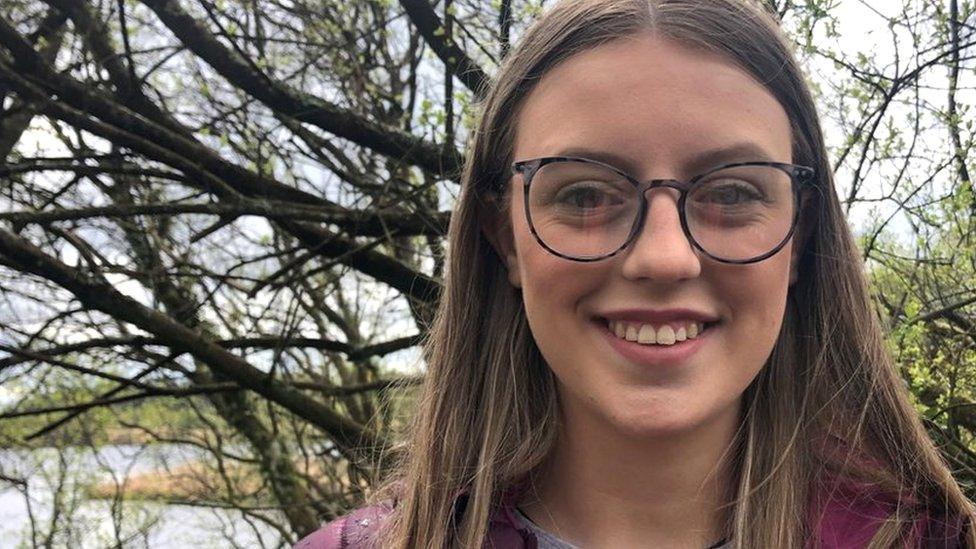Periods: Woman wary of cream sofas for fear of 'leaking'
- Published
Periods: 'He was so good about it... I wanted to die'
Heavy periods have had a big impact on Emma McFarland's life since she was 11 - getting worse after she had children.
The need to change sanitary towels every half an hour meant being near a toilet was a necessity and cream sofas were a no-no, for fear of leaking.
She has never had a diagnosis and said more needs to be done in this area.
Welsh Health Minister Eluned Morgan said women's health is something she'll be "asking health boards to focus on in coming years".
"There's loads of things I wouldn't even bother attempting to do," said Mrs McFarland, 36.
"Some people go for long hikes and things like that. Not in a million years would I be out for that long. I need toilets."
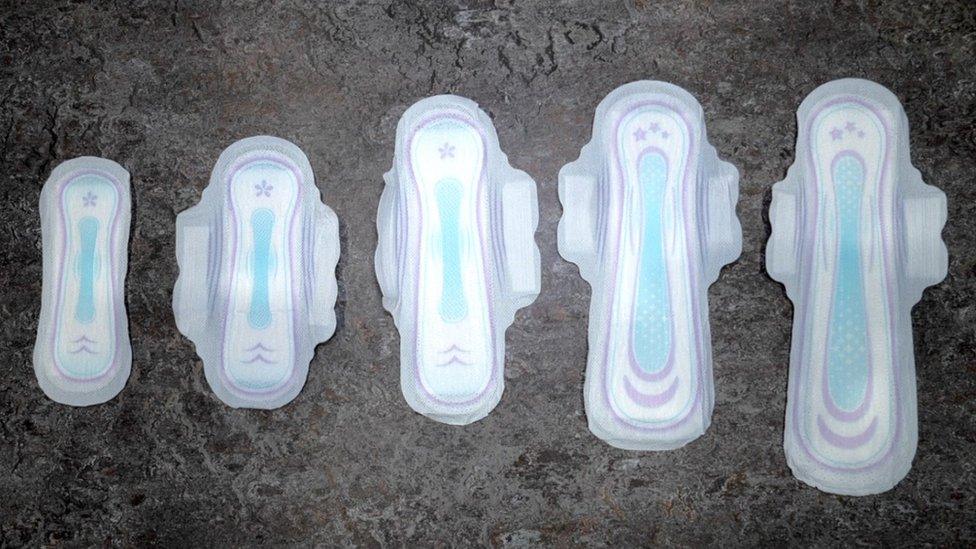
Mrs McFarland has to regularly change the pads she wears
She wears night time pads and period pants throughout the day, changing them every 30 to 60 minutes at its worst.
"I was struggling to get through a breakfast club run and get into the office," explained the mum-of-two from the Vale of Glamorgan, adding that getting out of the car and standing up would often lead to a leak.
She said: "I've done school runs at the end of the day where I haven't made it and I've had to change and clean the seat in the car.
"I've been to places and people have got white furniture and I won't sit on it. When I first met my husband, I had a heavy period and I did leak on the sofa. I was mortified."
While she has had tests and scans, a cause has yet to be found.
Medication from her consultant has made her periods "more bearable" by reducing the frequency of pad changes to around 90 minutes, though they are still just as heavy.
Mrs McFarland added: "If I'm changing that often, I don't think that's normal. I do just get on with it, but rather than being told 'everyone's different', it would have been nice to find out why."
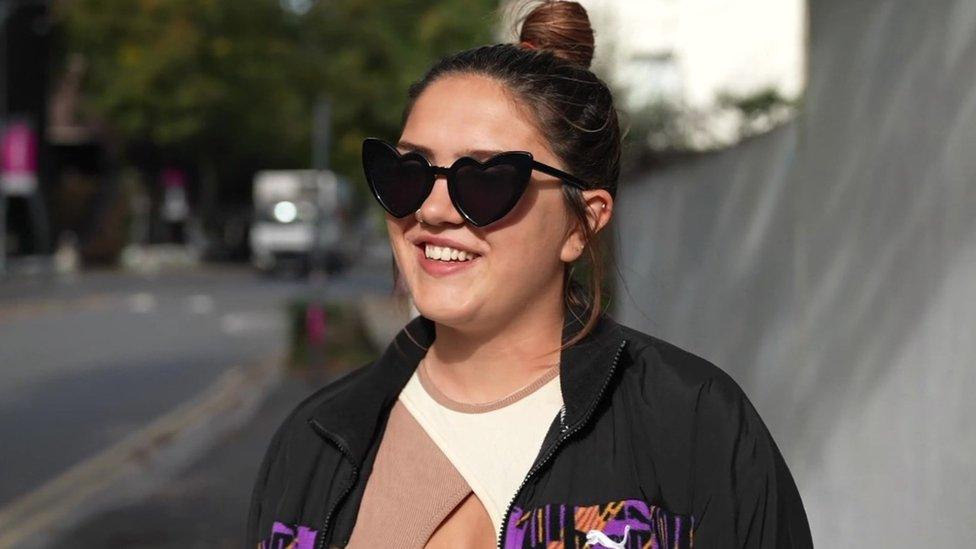
Mia Blum found gymnastics difficult during her periods
Mia Blum, 22, from Cornwall said heavy periods have impacted her, adding: "I was a gymnast, so it was very hard wearing a leotard to cover everything - it wasn't fun. There were definitely moments where you feel like you've wet yourself and have to go to the toilet."
Chloe Best, 19, from Jersey, has had to miss some days of school and work with really bad pain and nausea, describing it as "unpredictable".
"A lot of my generation, as with my friends and family we try and talk about it more, I'm very open about talking about it with my brother," she added.
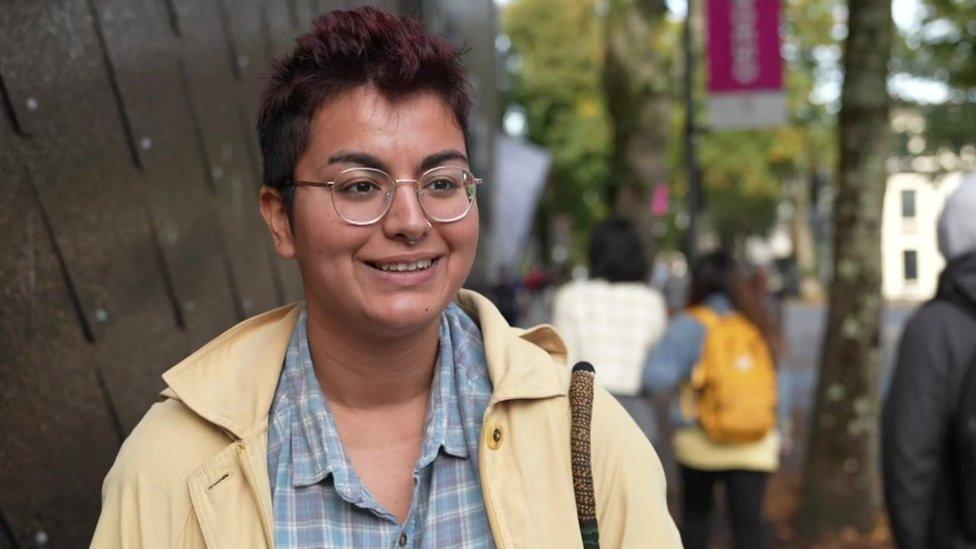
Vidhi Chaudhary believes women are now far more open than when she was growing up
Vidhi Chaudhary, 22, born in India, said: "When I was younger it was very hush hush and you had to be very sneaky with pads and stuff but now you can just talk about it."
Emma Hutchings, 18, from Surrey, agreed, but added: "The taboo is starting to go - it's still a little bit there, people are still reluctant to talk about it - I went shopping with a friend yesterday and she wanted to hide them so that no-one could see.
Prof Jacky Boivin, a health psychologist from Cardiff University, said: "Heavy bleeding a lot is not good, but normalisation occurs and young people don't know critical thresholds."
She explained girls often are not told how much blood loss is to be expected.
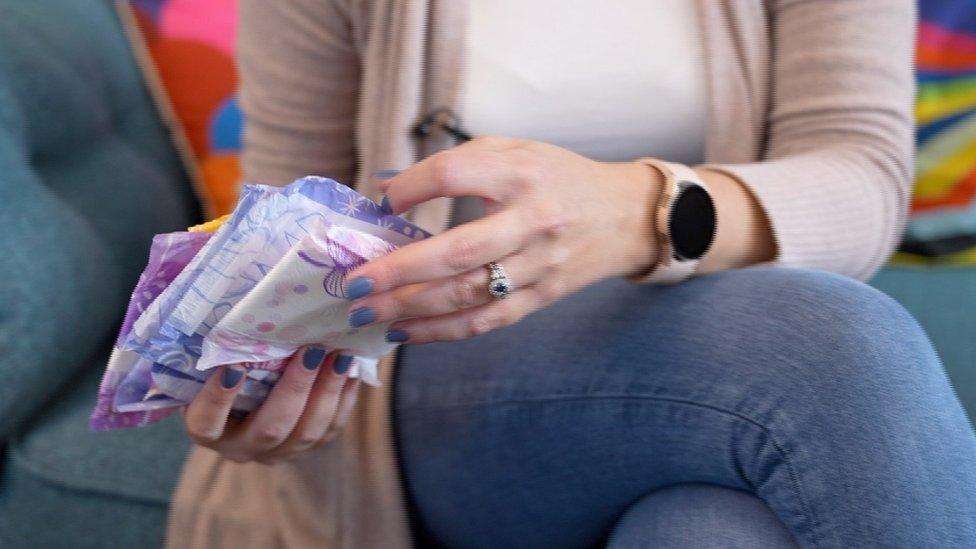
Some young women believe the "taboo" about talking about issues is disappearing
Having previously carried out work for the World Health Organisation, external on fertility, her latest research focuses on the impact of severe period pain on girls and young women.
"Some girls miss 25 days of school a year and have so much pain they pass out, but it's still normalised," she said.
"How can it be that young girls are disadvantaged so much, but no one is quantifying the days? If it was truancy we would do something.
"The more school you miss, the more you can be disadvantaged in future career opportunities."
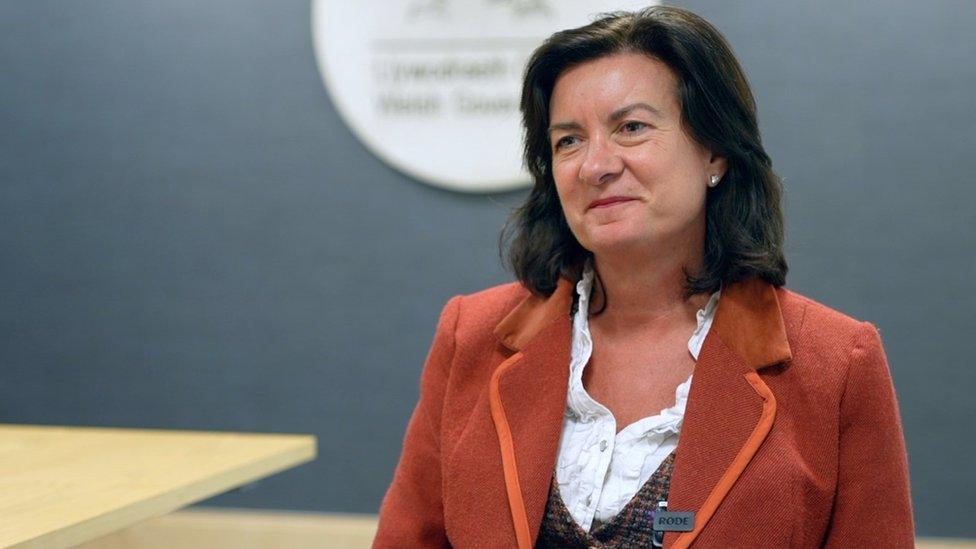
The health minister wants the issues to be looked at through a "new gender lens"
She is working on a project with school nurses in Caerphilly called Spinn - "severe period pain is not normal" - quantifying days missed, as well as giving school staff the information to help any pupil needing support.
Eluned Morgan said many of the health inequalities faced by women are systemic, but issues like period poverty and endometriosis are being tackled, adding: "There's a lot more we can do pretty quickly in relation to the menopause."
She wants health boards to look at what they are doing "with this new gender lens", adding: "Why isn't more being spent on research where it's only women who are suffering?"
"This is not a Welsh issue. This is something that is international. The whole system has been looked at for decades - for centuries - through the lens of the men who are developing the research and who are involved in the research.
"And so we do need now to put a different lens on things."
Eluned Morgan was speaking as part of a two-part women's health special on Walescast
Episode two will be broadcast on Wednesday 5 October, BBC 1 Wales at 22:40 BST

HELL'S BELLES: Meet the Welsh women racing to smash records
BAFTA CYMRU NOMINEES: Celebrate the best of the BBC

- Published4 October 2022
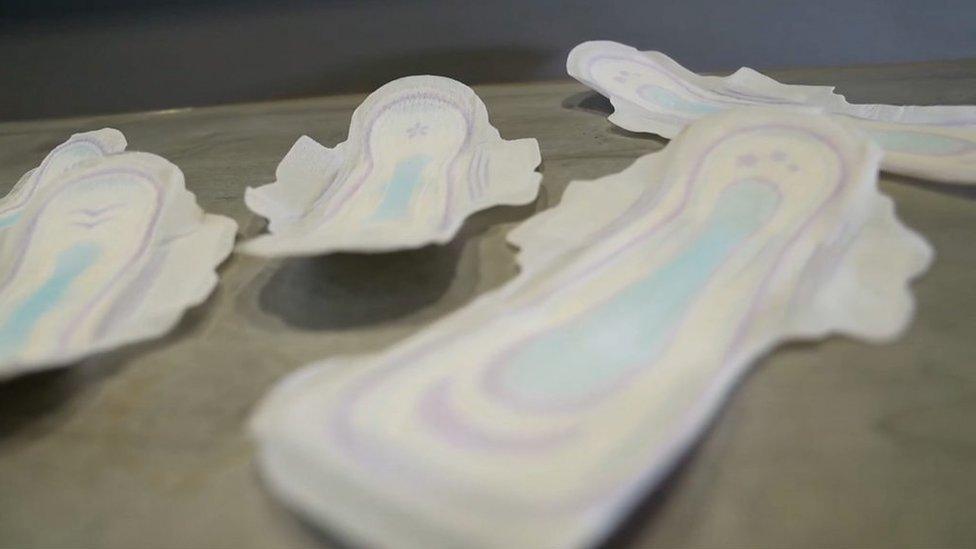
- Published15 July 2022
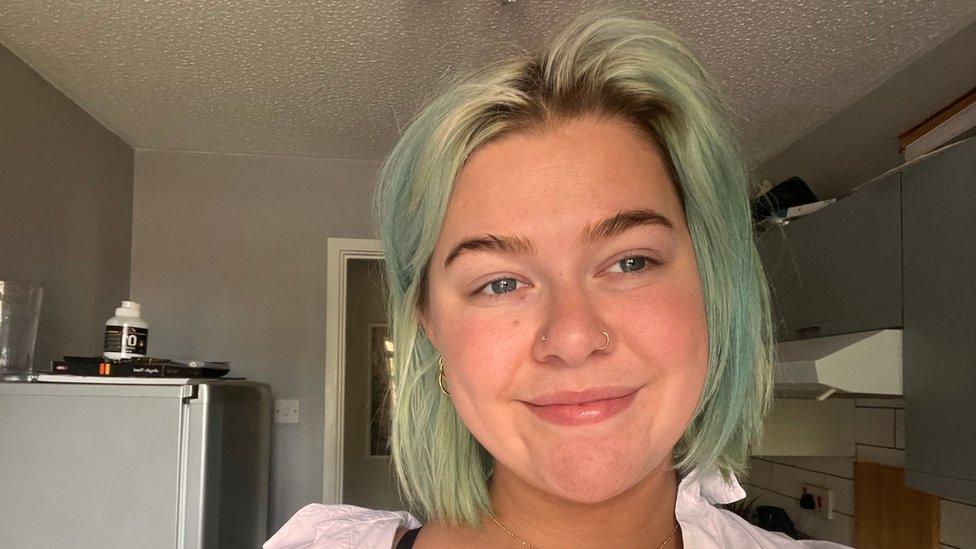
- Published22 April 2022
